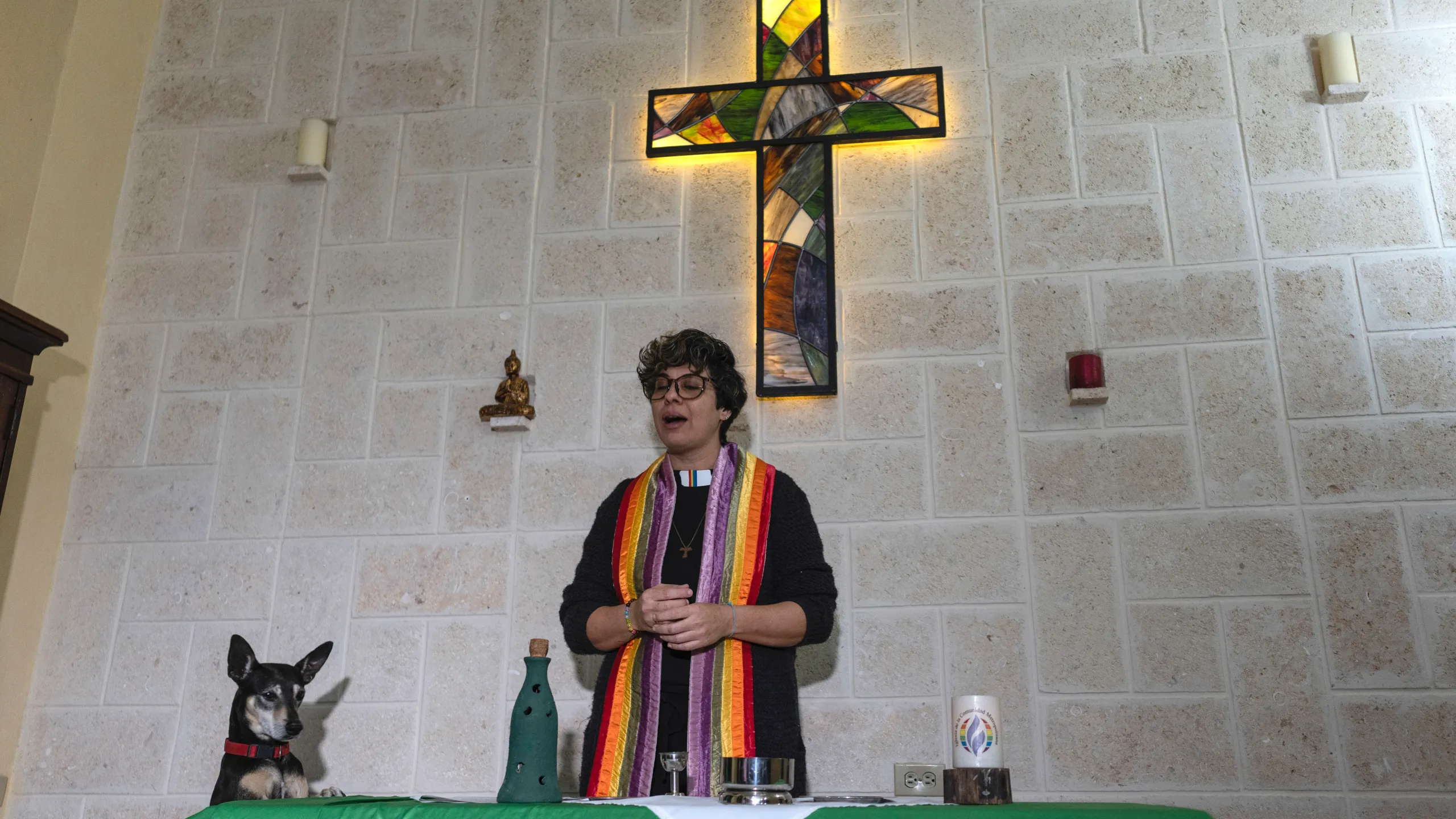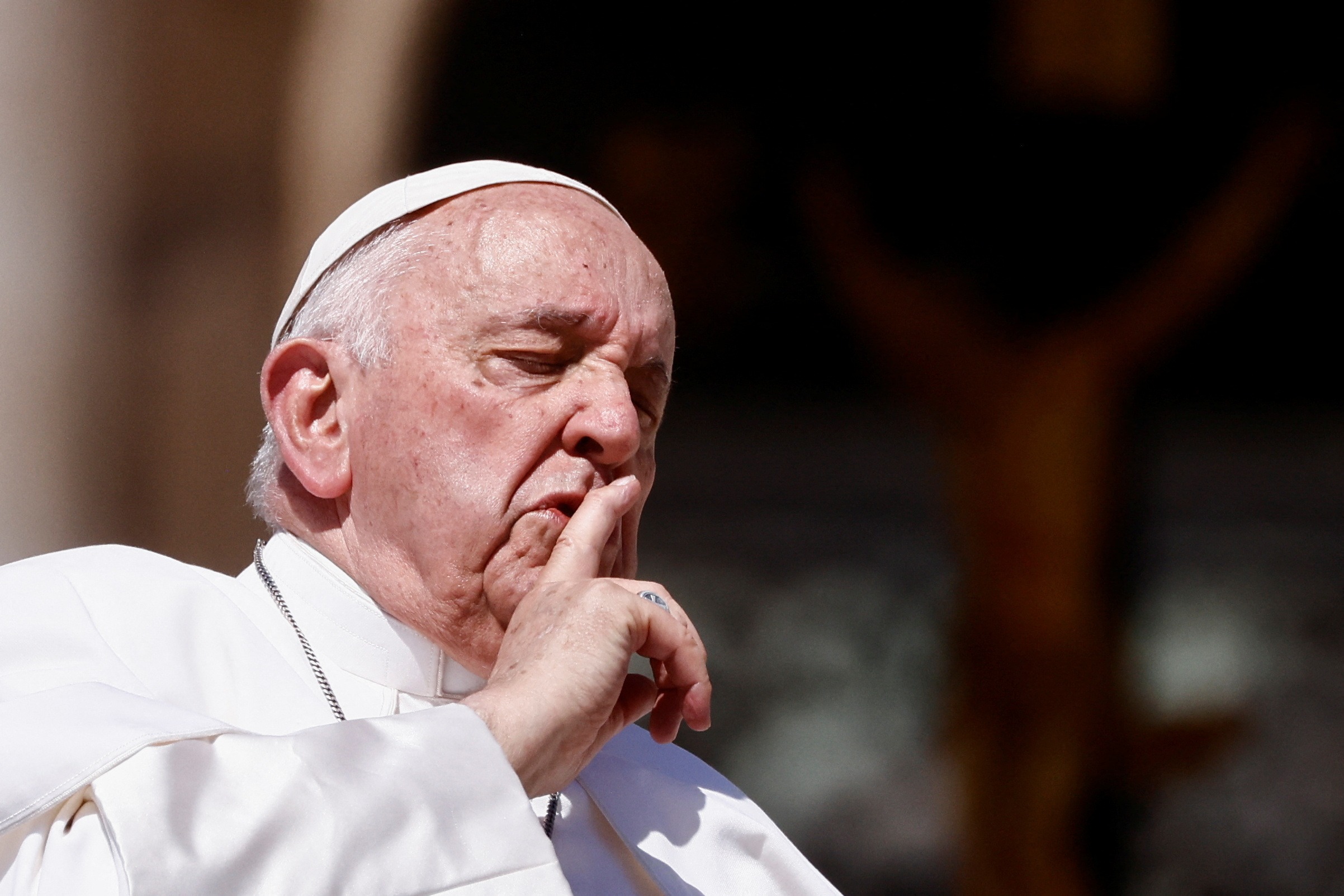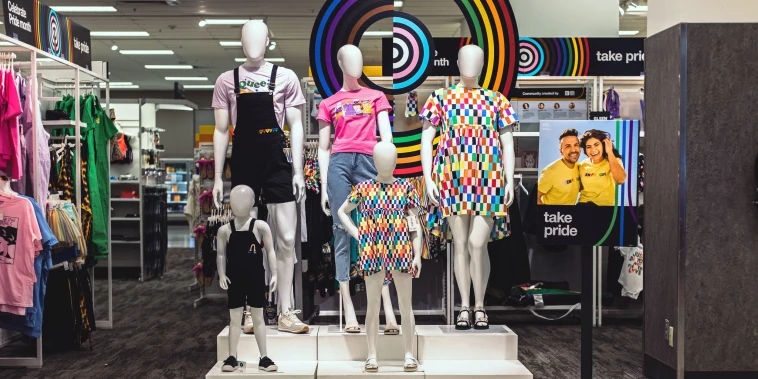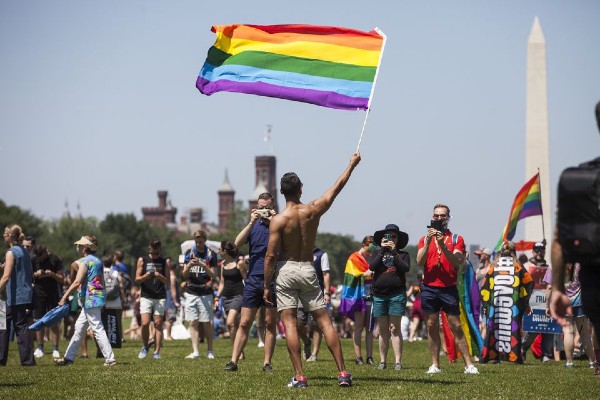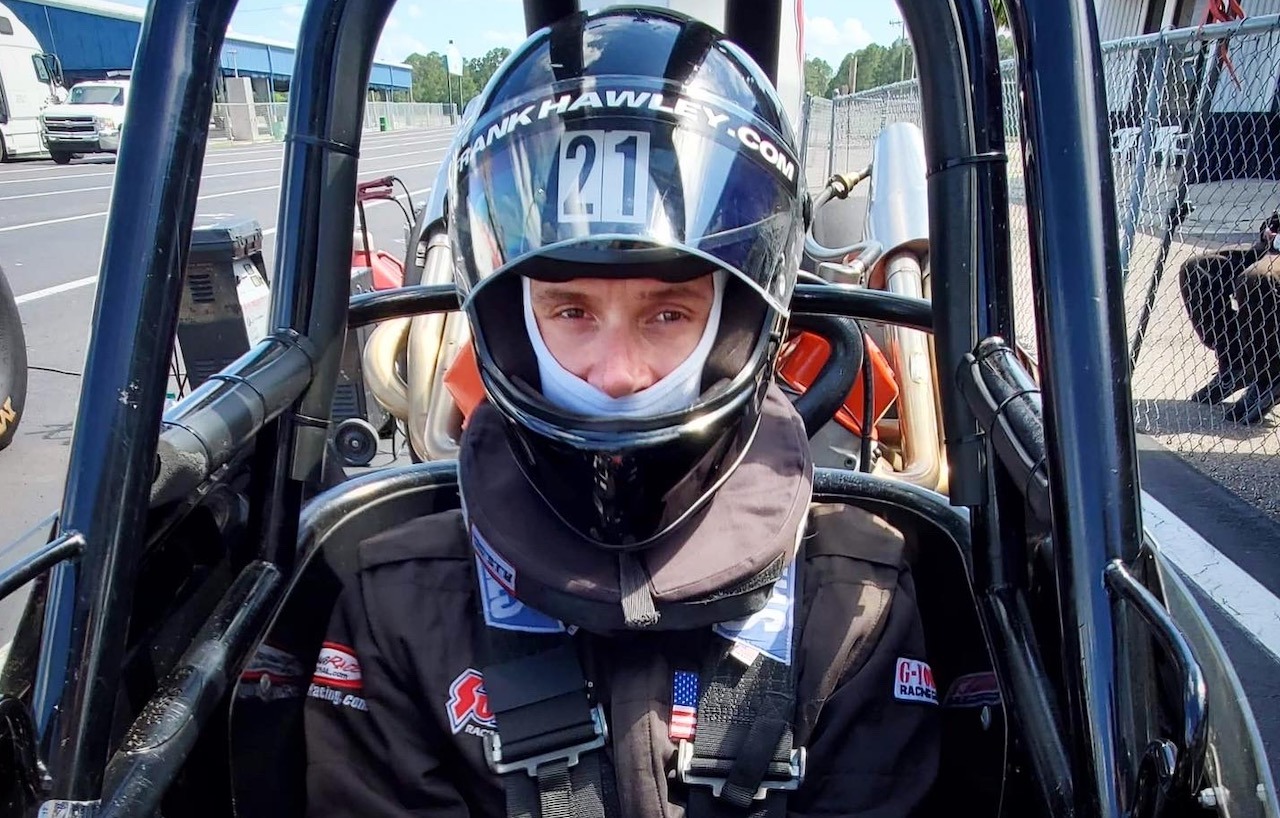
Travis Shumake wants to drag race — but RuPaul can’t help him with the kind of drag racing he’s trying to do.
Drag Race and drag racing are “similar with a lot of pomp and circumstance,” he says, including “unnecessary drama. But they’re vastly different. We’re a little quicker.”
Travis Shumake wants to drag race — but RuPaul can’t help him with the kind of drag racing he’s trying to do.
Shumake is hoping to follow in his father’s footsteps and become a professional drag car racer in the National Hot Rod Association (NHRA), the largest motorsports regulating body in the world, mostly known for their “funny car” racing competitions.
Check out the original story here: LGBTQ Nation.
But if he succeeds, he’ll be making new treads of a different kind on the raceway.
“I am an openly gay licensed racecar driver, trying to become the first full-time out driver in the NHRA,” Shumake tells LGBTQ Nation. “I’ve yet to compete in any race against another human being, but I am quickly trying to navigate into the highest ranks of professional drag racing.”
Not only could Shumake become the first out driver to win a competition in the NHRA, but he could become the first professional out race car driver across American motorsports, including NASCAR, to compete professionally.
Shumake’s journey into drag car racing was a natural one. It’s almost as if he was born with an affinity to it.
“My dad did it when I was a kid.”
His father, Tripp, was a two-time Funny Car Finals winner who raced for years in the 1970s and 1980s. He became universally recognized as “the nicest person in this sport for 28 years,” Travis said he’s been told, even after he retired and became a color commentator.
“The nicest guy at the track was always Tripp Shumake,” 16-time NHRA champion driver and a 21-time champion car owner John Force has said about Travis’s father.
In 1999, Tripp died in a reported hit-and-run accident while driving his motorcycle. He was 51.
“So it’s a legacy thing for me. My dad was a multi-time national event champion in the sport of drag racing, particularly in a funny car — and it’s that field I want to join,” Shumake tells us.
Funny cars accelerate dramatically up to speeds of 335 miles per hour before deploying a parachute to slow down.
“There are several professional classes but I wanted to be in a funny car, which is the fastest accelerating thing on the planet, and it’s faster than the space shuttle, even. It will cover more turf in a quarter-mile than anything else can. So the connection to that sport specifically, again, is just being around my dad.”
Travis’ mother, Susie, has remained in such high regard in the drag car racing community that she was inducted into the Arizona Drag Racing Hall of Fame in 2018. Travis recognizes they lived much closer to the action than even Travis did.
“My sister didn’t even go to like regular elementary school. She grew up in a semi truck driving around the country with my dad as a race car driver,” Travis recalls. “So that’s been a big concern, I think, for my mom and my sister, for whom, this was their life. I just flew to a couple of racetracks as a kid. My sister grew up with them her entire life.”
Still, even though there was a degree of separation for him, he has always wanted to follow in his dad’s footsteps.
“You know, we raced go-karts as a kid in the [NHRA] Junior Dragsters. My dad always felt that driving a go-kart on a real go-kart track is a far more transferable skill that teaches you so many things. So throughout my early teen years, I was driving 110 miles an hour in a go-kart, and not something you drive at an amusement park,” Travis says.
“I got to have like my own race car trailer. And I had sponsors, my go-kart cost something like $10,000. And I loved it, it was the connection that my dad and I had until he passed away when I was 15.”
“So the reason I want to choose this sport over other sports is to continue that legacy. And it’s kind of this feeling of my whole life. I knew this is what I was going to do. I knew that I wanted to follow my dad’s footsteps. As I became a teenager, I started to realize, oh, shit, I’m gay as fuck. So very much gay. And this is going to be a weird transition,” Travis remembers.
Besides being a race car driver, Tripp was also a devout Christian — and a Southern Baptist pastor, at that.
“I grew up in a household where what we knew on Sunday was either church or race cars. My dad was a deacon and a minister at our Southern Baptist Church in Phoenix,” Travis says. “On Sundays and Wednesdays, I would spend a lot of time at church. I remember my senior year of high school clocking that I was spending 30 hours of the week at the North Phoenix Baptist Church.”
Still, he felt nothing but love in his shortened time with his dad.
“I always felt supported, despite being in church all the time, I was still being my authentic self. I was. Even though my dad and I never had a face to face conversation about [my sexuality], my sophomore year of high school, he came and saw me every in every play that I was in — including a play called The Me Nobody Knows, at the Arizona School for the Arts. I played, like a gay teen from Brooklyn. It ran 11 nights, and my dad came to all eleven nights,” Travis remembered.
Travis also played the trombone and became a cheerleader.
“My dad came to every game that fall before he died,” whether Travis was in his marching band uniform or his cheerleading uniform. “He actually came to the football game the day before he passed away on a Saturday morning. He was my biggest fan.”
So there’s no doubt for Travis that his dad accepted who he is, and that his dad would support him trying to change what’s widely considered a conservative sport.
“People say, you know, the analytics say that the sport is 60 percent conservative. And I think people think it’s 80-20 conservative. People I know think it’s 60-40, and barely there. It’s even getting closer.”
Travis hasn’t experienced any outright bigotry, but he recognizes his father’s legacy contributes to that. He also knows that he’s seen too many Trump stickers and hats bought to the race track. That’s part of the drive pushing him to make it into the sport.
If Shumake was able to achieve his game-changing goals in the next year, it would come at about the same time that other out male athletes broke through the rainbow ceiling and became the first out athlete in their sports — most notably Carl Nassib in American football (“I finished one of my licenses the day he came out,” Shumake notes) and Luke Prokop in hockey.
Shumake’s even got competition in the motorsports realm, with 22-year-old NASCAR hopeful Devon Rouse right behind him and trailing hot-and-heavy in the (metaphorical) race to become the first. They talk regularly all the time, and they have high hopes for one another.
“We live vastly different lives, but we have such a passion for motorsports and we’re dealing with the same demographic of folks,” Shumake states, “So Devon is a wonderful resource on how to navigate some of these more critical conversations within the sport, because no one’s been talking to team sponsors or a team owner as a gay driver but him, but also he knows I’m talking to larger scale, other sponsors that he is not talking to. So there’s this trade off.”
Another thing that differentiates Shumake’s journey from the others, is that he doesn’t have to justify why he should be in the sport; he’s lived much of his life in it already. Coming out isn’t the challenge he faces, but it’s getting sponsors to believe in him.
“I do have a 9-to-5 job as a fundraiser. I do individual fundraising for a global nonprofit. I manage personal relationships, which is really fun. I mean, I constantly talk to about 400 donors, and on a daily basis, I’m talking to people about their lives and their birthday and maybe asking them for money here and there,” he tells LGBTQ Nation. “Then on the weekends, I’m a luxury wedding planner in Manhattan, and that’s what’s afforded me the opportunity.”
He stresses, “Drag racing is an expensive sport. My race car suit alone is $6,000. I don’t think people understand a lot of these things. Like, $6,000 is crazy. That’s a lot of money and I don’t have that. I don’t have a trust fund. I don’t have it. So my job allows me to stay alive in Manhattan, and my auxiliary income allows me to do this.”
Before trekking to New York, Shumake grew up and lived in Arizona most of his life, where he came to run an Arizona LGBTQ youth center. He understands the value of the money he’s asking for better than most may assume.
“I’m most excited about connecting philanthropy to racing, and most corporate groups really value that connection to their local community,” Shumake says. “So I picture that if this all happens, half of my race car will always be dedicated to philanthropy. You can wrap a whole race car, a trailer, a race suit, all of that in different brands every weekend. We should be wrapping that in a different LGBT youth shelter system or support system in every major market.
To get into the sport, Shumake has to do a lot more work than the average athlete — on paper, at least.
“You can’t just show up and do it, it takes quite a bit of licensing. So there are actually 17 different licenses in drag racing. There are over 100 sanctioned racetracks in the country and 20,000 licensed drivers in the United States. So I have invested quite a bit,” he explains.
“These licenses also cost money, and to put it in perspective, the funny car that I will drive and train in goes up to 335 miles an hour, the actual car itself cost a half a million dollars — and they blow up, I would say, six times a year. So that’s three million dollars someone is paying to likely go ‘oopsie’ in a fire.”
So in terms of investment, it may have some similarities to RuPaul’s Drag Race after all.
“It’s similar with a lot of pomp and circumstance. There are different levels of elimination. There’s a lot of undue drama, unnecessary drama. But they’re vastly different. We’re a little quicker,” Shumake says, “But I’m very much looking forward to bringing them together.”
“Someday down the road, I like to say that season two of my NHRA life will be near like season 20 of RuPaul‘s. We’re going to merge. I’ll be a guest judge and we’re going to bring the girls to the track! But I got to earn a couple wins before they really come in.”
The next major step in Shumake’s journey comes within the next few months.
“I have two more trips to Florida in the fall, then I’ll go to Dallas, on October 11, to get my final license,” Shumake says. “Then I’ll be officially licensed at the highest level that you can get in drag racing. I can drive any car I want that goes up to 335 miles an hour — and by that time, I will be $100,000 into this journey.”
After that, “My goal is to debut on November 13th, which is the anniversary of my dad’s passing. So there’s a lot of this year’s important to me.”
That race, the NHRA Finals at Pomona, is the last race of the 2021 season. It’s also one of the races that Travis’s dad Tripp won in his career.
“My dad died on November 13, 1999, and so we’re coming up on our 22nd anniversary of his passing, and that’s also a race track that’s the last race he ever won 40 years ago. Most of the professional drivers that won in their categories since then have dedicated the race to my father. So I would like to go back to this race this year and not only qualify, but do well at that event — and possibly win the last race he ever won, 40 years from the day that he won that race,” Travis explains.
“That’s less than 90 days from now and I don’t feel any pressure, other than raising the money.”
After that, he will try to make the 2022 season his rookie campaign as a full-time NHRA-certified gay drag racer.
While he’s inching closer and closer to his goal, Shumake knows that even if he doesn’t make it this year, or ever, it’s time for auto racing to have out drivers. In fact, he believes it’s long overdue.
“I hope that between Devon and myself in motorsports, we can really change American motorsports because I think there are other countries that are kicking our ass. American motorsports are behind this topic, and I hope that we can use the momentum of Carl Nassib, the Olympics, and Luke Prokop in the NHL to really help elevate underrepresented people in motorsports,” he says.
“There are 30 million viewers of this sport every year. About six percent of them are LGBTQ. We’re just 1.6 million people that are wanting to be represented in a race car.”
⭒
Check out the original story here: LGBTQ Nation.
⭒
⭒
⭒
Fun Fact: A study published in 2019 titled “Disintermediating your friends: How online dating in the United States displaces other ways of meeting” found that 65% of gay couples met through dating apps. That doesn’t mean it’s always a good experience, though! This is why we highly recommend premier dating sites like Gay Dating Solutions and My Gay Match.
My Gay Match is a new gay dating site that focuses on matching gay men not only on demographic information but a unique personality measure developed by a psychologist. All members are personally confirmed and carefully screened by their staff to prove that they are real. If you’re looking to find a warm and meaningful connection with interesting and caring singles this is the site for you. The gay dating website is currently offering a free 30-day trial.
